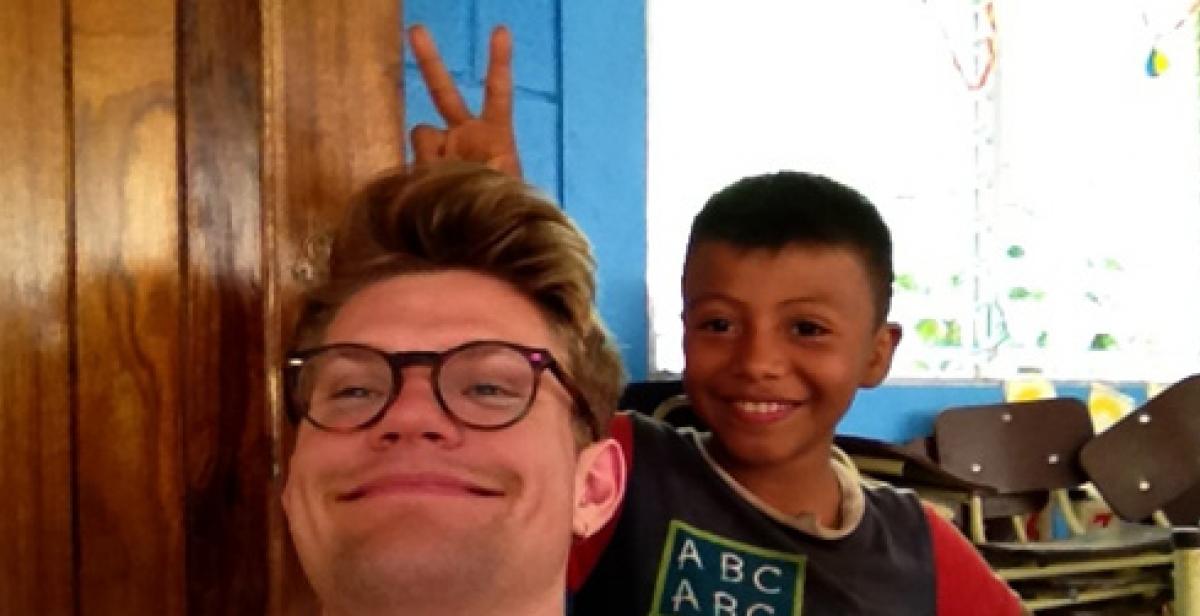We've been teaching English classes to the kids in El Pochote and Monimbo for over a month now and it's really amazing to see how much they are improving. There are seven classes over the two schools. Each class has either one or two lessons a week and are taught by two or three UK volunteers and two or three Nicaraguan volunteers in each class. With as many as forty students in each class it can be hard work but all this effort means that around 140 students between the ages of 8 and 15, most of whom have never studied another language before, are getting the opportunity to learn some Basic English.
We started by working on basic introductions: things like 'hello', 'my name is...', and 'I am ten years old', before working on numbers. Thirteen, fourteen, and fifteen seemed to be almost insuperably confusing.
Learning about animals was particularly fun. There was a day when the school was shut but the children still turned up for a class because we had said that we would be back tomorrow at the end of the previous class. All the classrooms were shut but Jessie, another UK volunteer, and I decided to do the class outside. We played stuck in the mud, where the only way to get unstuck was by successfully giving a response to the question 'what is your name?' We also played hide and seek with counting in English and games where we ran in a circle making animal noises and getting them to guess the animal's English name. After an hour and a half we were pretty exhausted and very hot but the children seemed to have got a lot out of it. It was a really good class, demonstrating that often the best way to teach someone is when they don't even think they are learning anything. It proved a success when we got them to describe the number and colour of a group of animals. They came out with gems like "thirteen panthers purple".
It can be a little frustrating to come back to a class a week later and ask 'what is your name?', a question to which they had gleefully responded the previous week, only to be greeted by a completely blank face. However, the children are so keen to learn and so good-natured such as laughing when we mess up our Spanish and making fun of our silly accents that it's just great when they do remember the smallest thing from the previous class, or say 'hello, how are you?' when you see them around El Pochote. As Alice, one of the UK volunteers and one of the teachers in El Pochote said, 'It's been really rewarding. It's such a pleasure to teach children who are so eager to learn.'
I personally am enjoying the teaching so much and finding that I'm learning lots about how best to communicate and work with other people. I've particularly enjoyed hearing the way the children copy, without even knowing it, the different accents of the volunteers and have no idea why it's so amusing.
From another perspective, it's obviously always a concern that we might be getting more out of it than they are. The hope is that they might be able to master some of the basics and maybe want to keep improving or even study it further, rather than that the students will become conversational in English. Beyond that, if they have a good time and it gets them thinking, then that's not bad either.
I think from the volunteers' point of view, it's pretty nicely summed up by Pam, who told me 'I've found it a little challenging but I'm learning a lot. It's fun. I've learned that I can do things I didn't think I could.'
Written by ICS volunteers Nathan Ellis and Katie Exell



